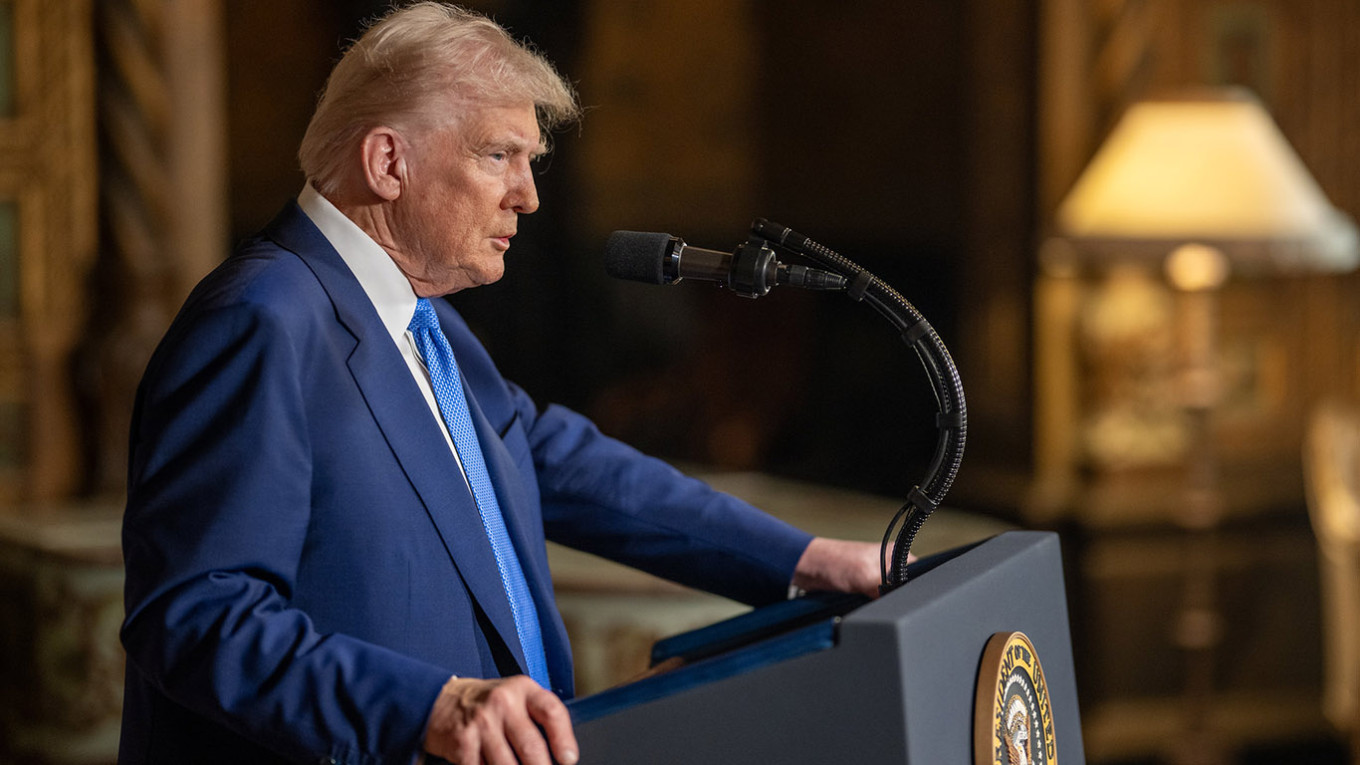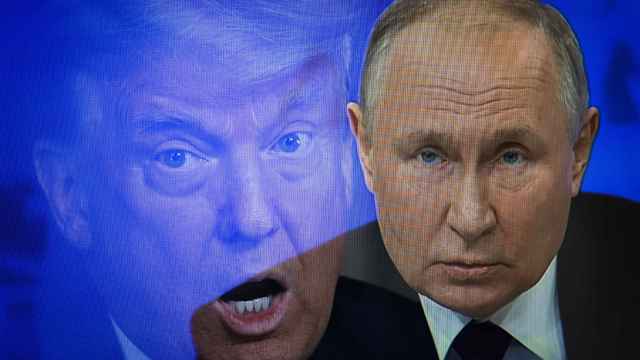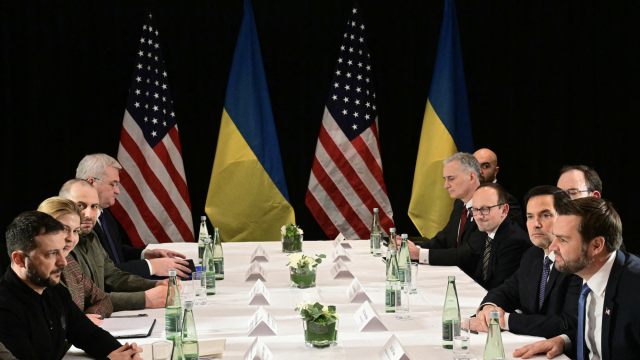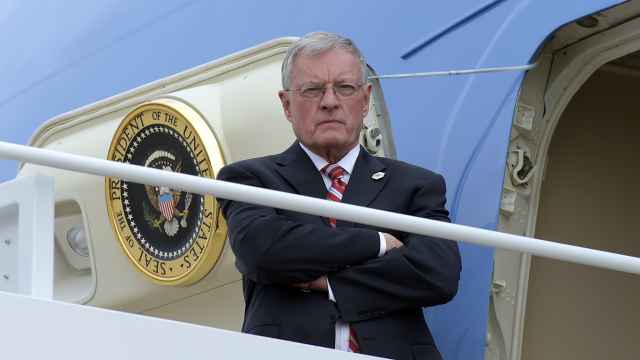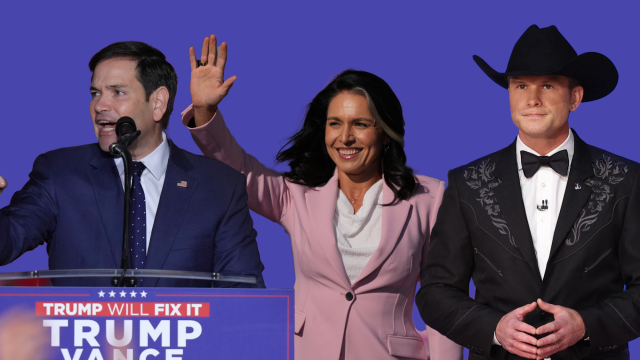U.S. President Donald Trump has made several statements on Ukraine and Russia’s full-scale invasion of the country in recent days that closely resemble Kremlin rhetoric.
The assertions have amplified fears that Trump, who is pushing to end the three-year war, may try to pressure Kyiv to make major concessions without seeking many in return from Moscow.
The Moscow Times examines Trump’s statements and how they compare to Kremlin talking points — plus the truth behind the claims:
Trump blames Ukraine for war
“I think I have the power to end this war, and I think it's going very well. But today I heard, ‘Oh, well, we weren't invited.’ Well, you've been there for three years. You should have never started it. You could have made a deal,” Trump said Tuesday following talks between U.S. and Russian officials in Saudi Arabia.
The claim that Ukraine or the West, not Russia, was responsible for Russia’s full-scale invasion of Ukraine is one that Putin has repeated many times since Feb. 24, 2022. In his address to the Russian people declaring the invasion, Putin repeatedly blamed Ukraine for instigating what he called Russia’s “special military operation.”
“In order to achieve their own goals, the leading NATO countries support extreme nationalists and neo-Nazis in Ukraine,” Putin said. “You and I have been left with no other opportunity to defend Russia and our people than the one we are forced to use today. The circumstances require us to take decisive and immediate action.”
This line of thinking has been repeated over and over again by pro-Russia voices on Telegram and state media, as well as by both Putin and Foreign Minister Sergei Lavrov in their interviews with American far-right pundit Tucker Carlson.
However, just as it was in 2014, it was Russia who started the war by invading Ukraine three years ago.
Trump questions President Volodymyr Zelensky’s legitimacy
“When they want a seat at the table, you could say the people have to, wouldn’t the people of Ukraine have to say, like, ‘You know, it’s been a long time since we’ve had an election.’ That’s not a Russia thing. That’s something coming from me and coming from many other countries also,” Trump said Tuesday in response to anger over his administration entering talks with Russia over Kyiv’s head.
The next day, he went a step further, calling Zelensky a “dictator without elections.”
Ukraine holding elections is one of Moscow’s key demands, as Putin likely believes that a new Ukrainian government would be much more pliable or amenable to Moscow’s wishes.
In May 2024, Putin said that Zelensky’s term had expired and that Ukraine needed to hold an election, a claim that has been repeated numerous times to question Zelensky’s legitimacy as a leader.
Zelensky was elected to a five-year term in April 2019, with 73% of the vote in the second round. Ukraine was scheduled to hold a presidential election in 2024, but Zelensky has stayed on as the country’s constitution forbids holding elections under martial law.
Reuters reported this month that the Trump administration would push for new elections in Ukraine following a ceasefire deal. According to Reuters, U.S. officials have been raising the issue of elections with Kyiv since 2023.
A Ukrainian government source told Reuters that "[Putin] is setting a trap, claiming that if Ukraine doesn't hold elections, he can later ignore any agreements.”
“Trump is reacting, in my view, to ... Russian feedback,” a former Western official said to Reuters. “Russia wants to see an end to Zelensky.”
Zelensky’s ‘4%’ approval rating
“We have a situation where we haven't had elections in Ukraine, where we have martial law, essentially martial law in Ukraine, where the leader in Ukraine, I mean, I hate to say it, but he's down to 4% approval rating,” Trump said when asked about elections in Ukraine.
Trump offered no evidence to support the 4% number.
A February 2025 survey conducted by the Kyiv International Institute of Sociology showed that Zelensky retained the trust of 57% of the respondents, a five-point increase from December. Additionally, 37% said they did not trust him, while 6% responded that it was difficult to say.
A Message from The Moscow Times:
Dear readers,
We are facing unprecedented challenges. Russia's Prosecutor General's Office has designated The Moscow Times as an "undesirable" organization, criminalizing our work and putting our staff at risk of prosecution. This follows our earlier unjust labeling as a "foreign agent."
These actions are direct attempts to silence independent journalism in Russia. The authorities claim our work "discredits the decisions of the Russian leadership." We see things differently: we strive to provide accurate, unbiased reporting on Russia.
We, the journalists of The Moscow Times, refuse to be silenced. But to continue our work, we need your help.
Your support, no matter how small, makes a world of difference. If you can, please support us monthly starting from just $2. It's quick to set up, and every contribution makes a significant impact.
By supporting The Moscow Times, you're defending open, independent journalism in the face of repression. Thank you for standing with us.
Remind me later.


